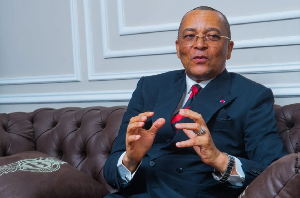Women leaders drawn from several groupings across Cameroon have pitched their ideas and voices on paper, demanding that the Government should grant them equal rights to inherit and own land, just as their male counterparts.
The demands are the main subject of a gathering in Limbe on November 14, organised by the Centre for Assistance to Justice and Animation for Development, CAJAD.
According to one of the women leaders, Anne Munjong, ace journalist with CRTV Buea, they have come to “realise that women are just human beings like every other person and they, too, just as the men and the male children have a right to own land.”
She went forth to state that the misfortune has been that most of the women or girls in Cameroon have grown up in a male chauvinist society where all land rights or laws are reserved for the boy child.
“But with the evolving society of today, we think there is need for this to change,” she added.
The women, after brainstorming for the whole day, came up with a number of proposals, which they agreed, will be further scrutinised by a select team of five and packaged for submission to the Land Tenure Law review commission, which is presently reshaping the land law in Cameroon. The women are intent on having the Government include their proposals in the new body of laws that shall arise from the work of the review Commission.
“For over two years now, the Cameroon legal framework for land tenure is under review. Ideally, the process is expected to be participatory, demanding that various stakeholders give their inputs,” the Director of CAJAD, Barthelemy Tchepnang, said.
One of the proposals which the women want to be considered in the new land law is that “membership of all traditional councils in Cameroon, henceforth, will be made up of a 30 percent female representation.”
The women argued that traditional councils in Cameroon, in most villages, are all made up of men and the institutions where all land decisions and other issues concerning land ownership and inheritance are decided. They stated that, for the women’s rights to land to be upheld or defended, women must be made part of the traditional council; else their demands might never be met. They also decided that traditional council representatives in the Land Consultative Boards must also have to, henceforth, include women.
The women further requested that the new land law must oblige the Chiefs, Fons, Sultans or Lamidos and any other traditional ruler or those ranked as such, to desist from the practice of refusing to recommend or sign land documents presented to them by women.
It was observed that, in the Southwest Region in Fako, some Chiefs easily give their ok to women who want to procure land certificates for their land. But, they said, in other regions like the Northwest, the traditions of the place were still very strong in disfavour of women. The situation they said, is even worse in the northern regions.
According to the President of the Limbe Women’s Forum, Boukolé Passale, who hails from Figuil in the North Region, “owning land by a woman is a near impossibility.”
Boukolé said“in the Grand North, the married woman is, first of all, considered as a man’s property. So, I don’t think she can even think of owning land.”
She was, however, optimistic that with the new drive by CAJAD, the women of the Grand North can someday also have the right to inherit or be able to buy and own land.
The participants at the Limbe brainstorming workshop took notice of the fact that Cameroon has signed and ratified the Maputo Protocol of 2007, initiated by the African Union, which, in its Article 21, posits that all African women should have the right of inheritance.
By this, they were hopeful that this was a good drive by the Cameroon Government on the road to according women the much needed equal rights for them to be able to inherit, acquire or own land.
The workshop was opened by the Divisional Delegate of Women Empowerment and the Family, Prudencia Fonkwe, and had as facilitators, Irene Dongo and Brice Martial of CAJAD.
Actualités of Sunday, 23 November 2014
Source: The Post Newspaper












